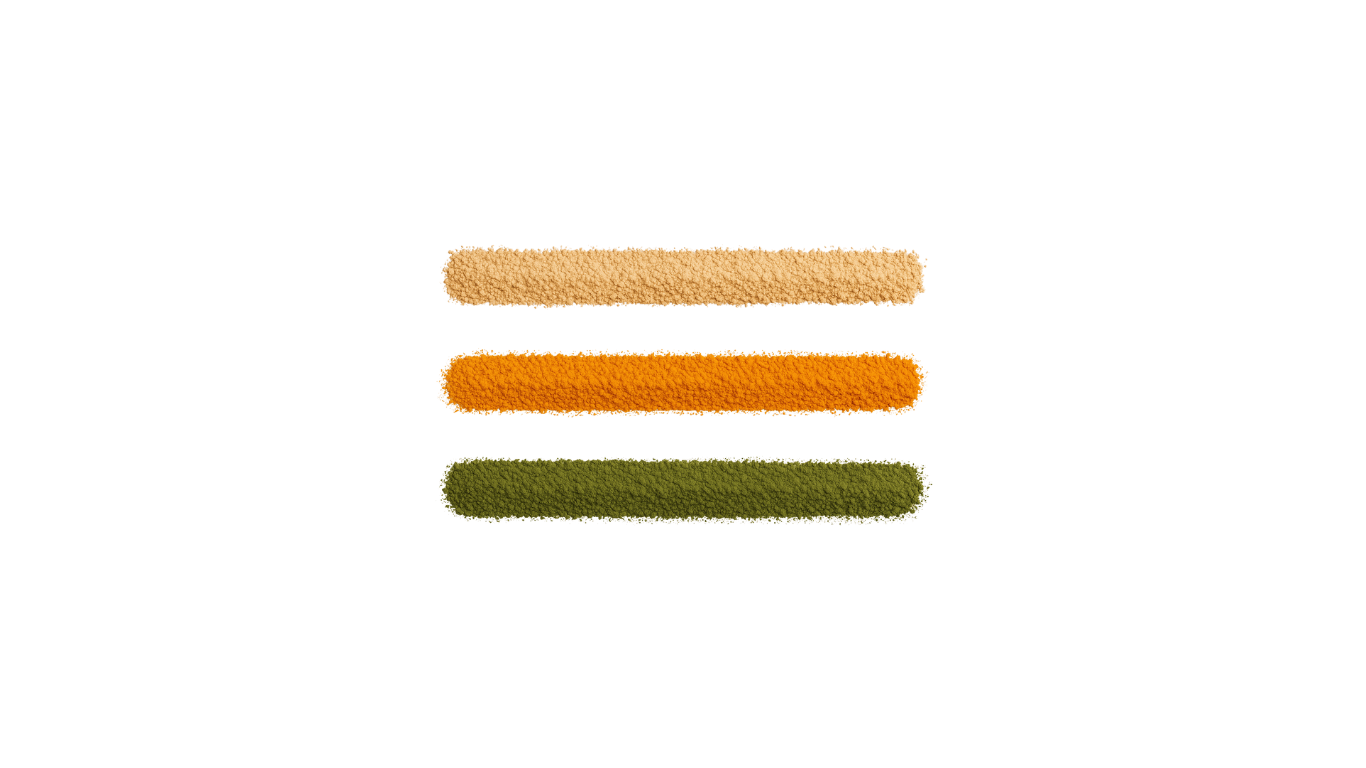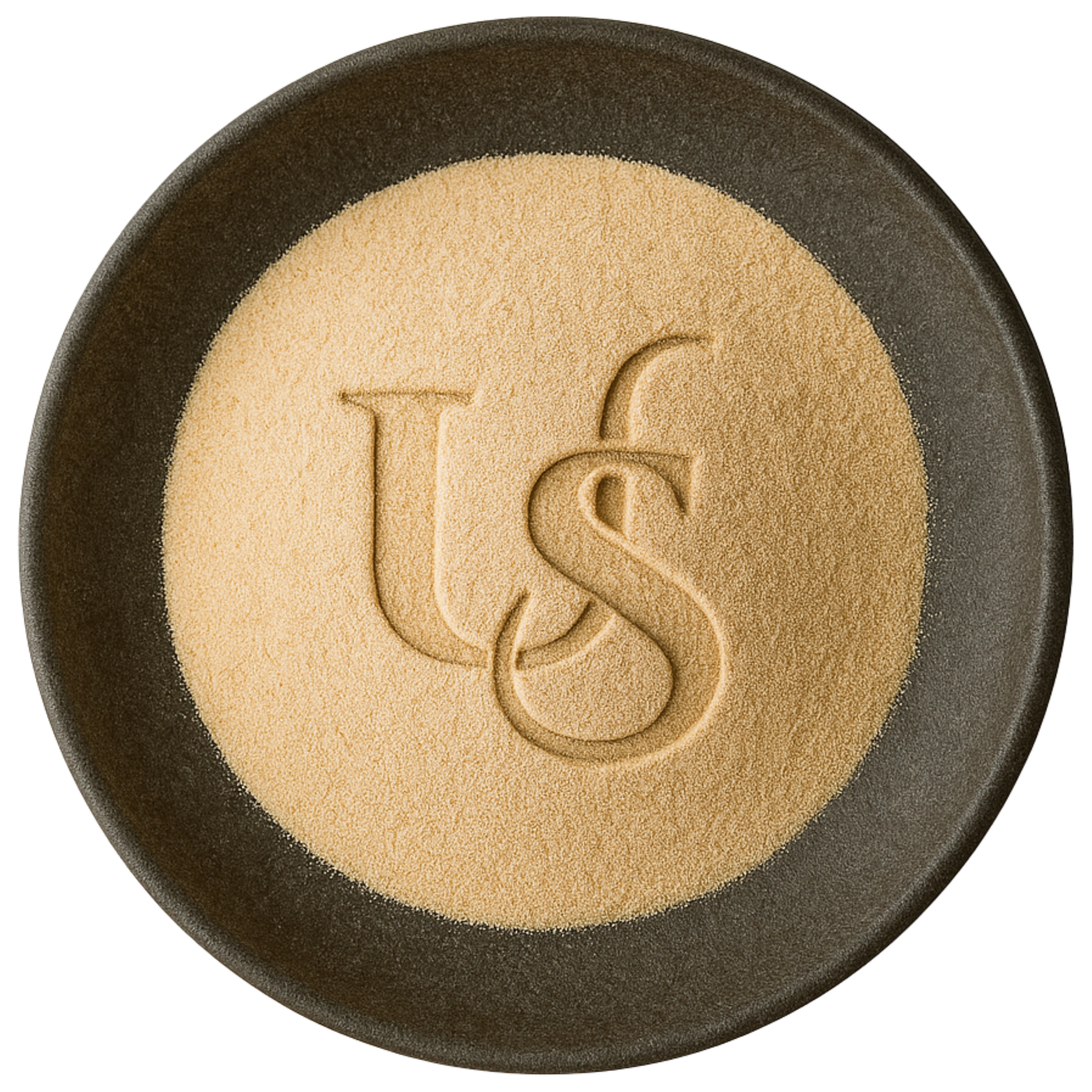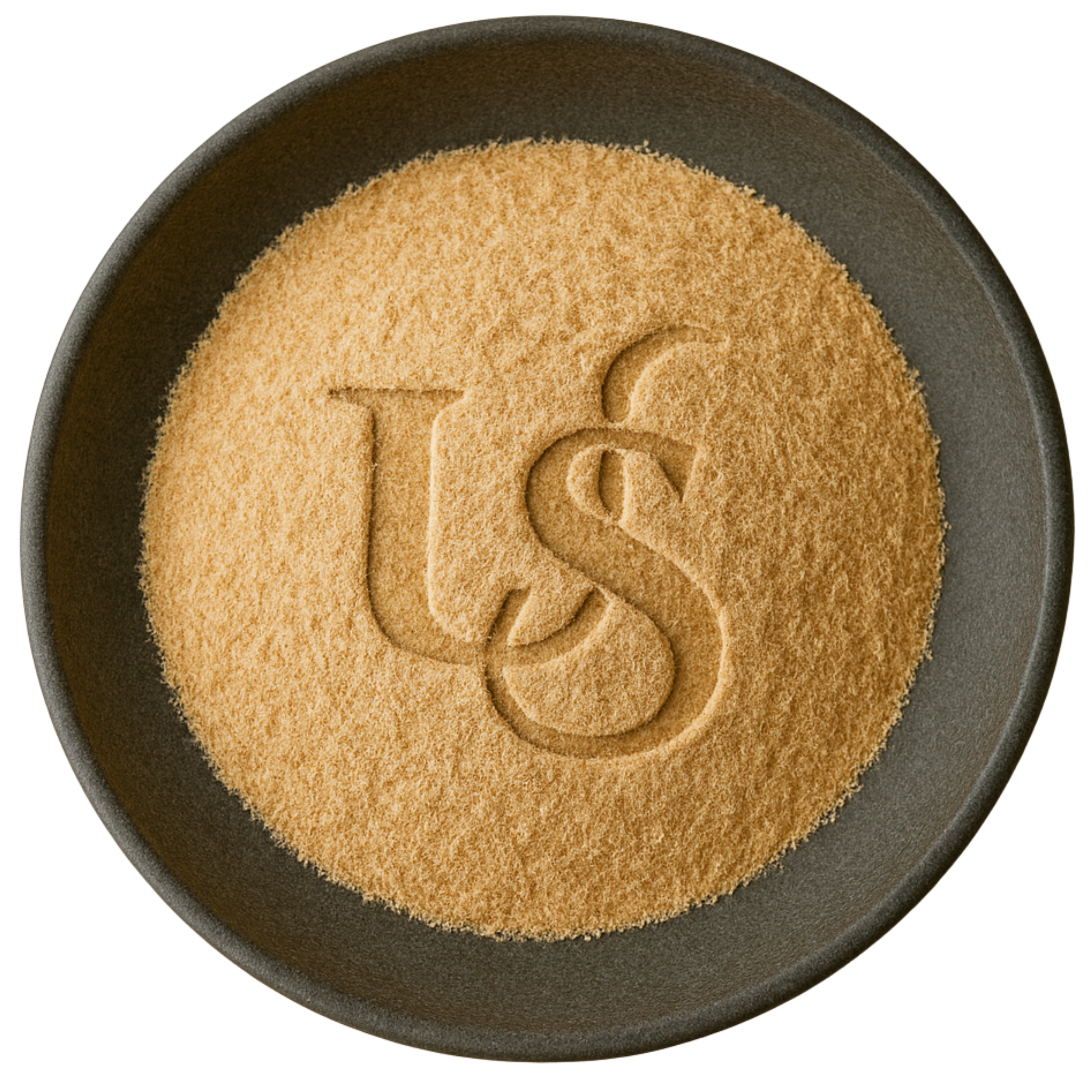Powders With Purpose.
Brewer’s Blend | Bio-active Modifier
-
Brewer’s Blend is a bio-active modifier made from upcycled brewer’s spent grain (BSG)
Benefits: Functional fiber, performance enhancer, carbon-smart input
Target applications: Bioplastics, molded fiber, sustainable packaging
-
Enhances polymer performance and bio-content
Supports compostability or recyclability goals
Cost-effective alternative to traditional fillers
Contributes to carbon reduction and ESG reporting
-
Moisture: < 2%
Particle Size:
D50: ~60µm
D90: ~97µm
Loose Density: ~0.29 g/cc
Packed Density: ~0.42 g/cc
Ash Content: < 5%
Protein Content: > 28%
Total Dietary Fiber: > 50%
Ideal load rate: 40-60%
Available formats:
Drum packed
Super Sack
-
Polymer compatibility:
PLA
PHA
Starch blends
Recycled PE/PP
Thermal stability (DSC/TGA summary, available upon request
-
Sourced from food-grade organic byproduct
Upcycled = lower embodied carbon
Circular economy: Food → Powder → Packaging
Eligible for USDA BioPreferred or similar certifications
-
SDS available upon request
COA provided with every lot
Food-grade and non-toxic (as applicable)
Regulatory notes (Prop 65, REACH, FDA contact surfaces if relevant)
Brewer’s Fiber | Natural Modifier
-
Brewer’s Fiber is an upcycled, organic powder derived from food-grade brewer’s spent grain.
Specifically formulated for molded fiber products like trays, clamshells, plates, and protective packaging.
Offers a functional, cost-effective way to reduce virgin pulp usage while improving product performance.
-
Improves fiber bonding and form stability
Enhances wet and dry strength
Reduces energy usage during drying
Supports compostability and clean-label claims
Helps meet cost reduction and sustainability goals
-
Moisture: < 4%
Particle Size:
D50: ~395µm
D90: ~945µm
Loose Density: ~0.20 g/cc
Packed Density: ~0.27 g/cc
Ash: < 5%
Protein: > 12%
Total Dietary Fiber: > 70%
Ideal Load Rates: 30-50%
Available Formats:
Drum Packed
Super Sack
-
Compatible with wet press, thermoforming, and dry molding lines
Enhances surface smoothness, reduces warping and shrink
Can displace synthetic binders or reduce starch usage
Performs well in blends with recycled fiber, bagasse, and bamboo
Shown to improve mold fill and dewatering speed in early trials
-
Sourced from 100% upcycled organic byproducts
Minimizes dependence on virgin fiber and agricultural inputs
Lower carbon footprint than wood pulp or ag-fiber alternatives
Eligible for compostable and bio-based certifications
Supports circular manufacturing and waste valorization
-
SDS and COA available
Non-toxic, food-grade sourced, no additives
Meets Prop 65 compliance
Documentation available for compostability and regulatory claims



